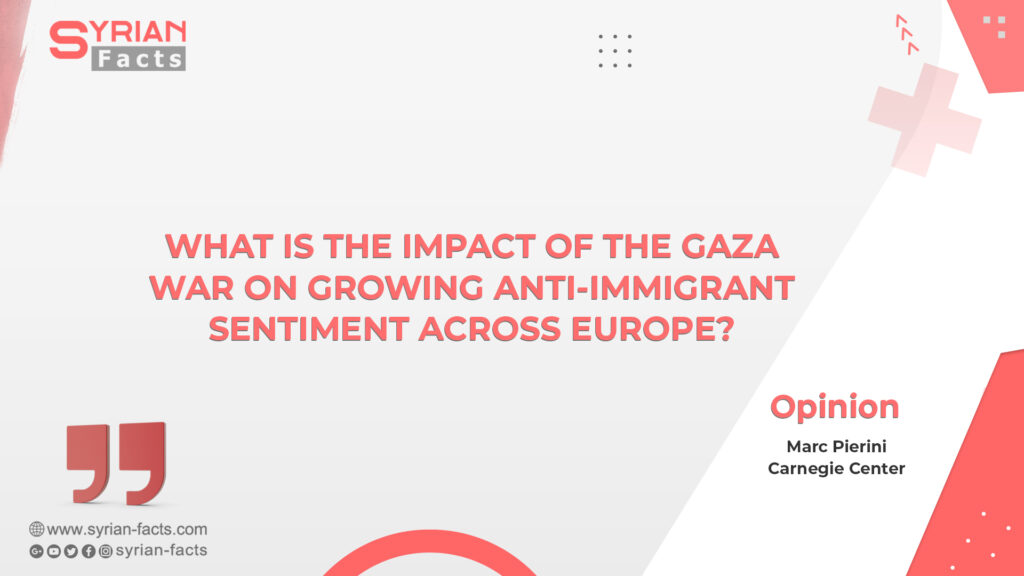The sentiment across Europe against irregular migrants and refugees has grown since the massive 2015–2016 arrivals from Syria. This feeling has also been fed by human trafficking networks bringing mostly economic migrants from West Africa, the Horn of Africa, and South Asia.
The tragic events unfolding since October 7 in southern Israel and Gaza will not have a direct impact on migration flows, but may contribute to resentment not only against Hamas, but also, and more irrationally, against Palestinians, Arabs, or Muslims in general. The emotions triggered by the Hamas incursion into Israel and its murder of civilians may end up creating reactions that conflate terrorists, irregular migrants, and asylum-seekers, in a general mood of xenophobia.
Most Europeans have no detailed knowledge of the politics of the Middle East. However, they have a lingering fear of the consequences of wars in the region, based on the exodus of civilians who fled the Syrian civil war. In today’s context, several political factors may add to these fears.
First, the policy currently pursued by Israel’s war cabinet leaves no realistic hope of a political outcome for Palestinians based on a two-state solution. On the contrary, the indications are that Israeli Prime Minister Benjamin Netanyahu wants Palestinians to leave Gaza and the West Bank.
Second, Egypt and Jordan have stated that they are unwilling to host displaced Palestinian populations from Gaza or the West Bank, respectively.
Third, Europe’s extreme-right populist politicians may well exploit the Israeli-Palestinian conflict, and the absence of a politically acceptable prospect for a Palestinian state, in order to make electoral gains based on fears unrelated to the conflict itself.
Fourth, this political trend might also gain traction in Germany following the visit of Turkish President Recep Tayyip Erdoğan on November 17. During the visit, he took a position on Hamas that was opposed to that of German Chancellor Olaf Scholz, and was described by his communications director on X (formerly Twitter) as “the voice of global conscience.”
The Gaza war is unlikely to have a direct impact on the flow of migrants or refugees to Europe. But Europe’s populist circles may well try to make political gains based on the fears it has created among their followers.
Carnegie Center





Be the first to write a comment.